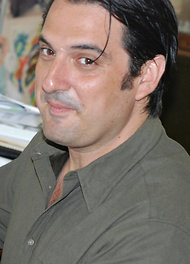By nominating Ms. White, a former federal prosecutor, to head the S.E.C. last week, President Obama appeared to send a message that Washington was finally going to get tough with financial wrongdoers. Tough enforcement has been pretty much AWOL on his watch. Maybe Ms. White can change that with a new, aggressive approach.
Here’s a good place to start: The S.E.C. routinely lets companies and individuals settle cases against them without admitting or denying its findings. This lets bad actors pretend that they’ve done nothing wrong. It also makes it harder for investors to mount successful lawsuits against them.
Regulators say this is the best approach. The practice, they contend, helps the S.E.C. and other agencies avoid costly, time-consuming litigation that would tax already-stretched resources. Quick settlements, rather than long trials, mean victims get restitution faster. And there’s always the possibility that the S.E.C. might lose in court.
But these no-admission settlements can be little more than a wrist slap — and certainly do not qualify as punishment. Most financial penalties end up being paid for by the company’s shareholders or its insurance policies. That’s not much of a deterrent.
Here is another reason the S.E.C. should junk these arrangements: other prosecutors have already done so. Preet Bharara, the United States attorney for the Southern District of New York — hired by Ms. White in 2000 when she ran that office — has made it a priority to require admissions from defendants in civil fraud cases brought by his prosecutors.
Such admissions are a way to hold defendants accountable, as well as being an important part of the public record, Mr. Bharara says.
“When we’re talking about vindicating interests related to fraud, companies and individuals whenever possible should have to admit that they engaged in bad conduct for all the world to see,” Mr. Bharara said in an interview last week. “In addition to seeking accountability and punishment and remuneration, we also have the responsibility to speak the truth, to get at what actually happened.”
His office has extracted admissions from defendants in 23 civil cases since creating its civil fraud unit in March 2010. One case, from last May, involved Deutsche Bank and its mortgage unit, MortgageIT. Prosecutors accused the bank of reckless lending practices spanning a decade. They also contended that the bank made false certifications to the Department of Housing and Urban Development, which insured the loans.
In settling the case, defendants at MortgageIT and Deutsche Bank paid a total of $202.3 million. But perhaps more important, they also admitted, acknowledged and accepted responsibility for the misconduct uncovered by prosecutors.
These admissions not only bring much-needed accountability in such matters. They can also help private plaintiffs overcome some of the hurdles they face when bringing cases. “There are so many obstacles placed on investors trying to bring claims when a fraud is committed,” says Gerald H. Silk, a partner at Bernstein, Litowitz Berger Grossmann. “Having the ability to rely on admissions by corporate defendants in government actions will help insure that meritorious cases are not dismissed on technical procedural grounds.”
It won’t be easy to change the mind-set at the S.E.C. from one that regularly allows defendants to avoid culpability. Most of all, pursuing a more aggressive litigation stance requires that the agency’s prosecutors be ready and able to go to trial.
Having the threat of a trial hanging over settlement proceedings, Mr. Bharara says, helps his prosecutors secure admissions from defendants. “We’re not in the business of bluffing,” he says. “When people know you’re not bluffing, they come to the table.”
The S.E.C. is by no means the only government agency striking these unsatisfying settlements. In Congressional testimony defending the practice last May, Robert Khuzami, the S.E.C.’s departing enforcement director, noted that some federal agencies allowed defendants settling cases to deny any wrongdoing whatsoever. He cited a 2011 settlement between Facebook and the Federal Trade Commission involving accusations that the company deceived consumers by failing to keep privacy promises; that deal noted that Facebook “expressly denies the allegations set forth in the complaint.”
Article source: http://www.nytimes.com/2013/01/27/business/at-the-sec-a-chance-to-get-tougher-on-settlements.html?partner=rss&emc=rss




